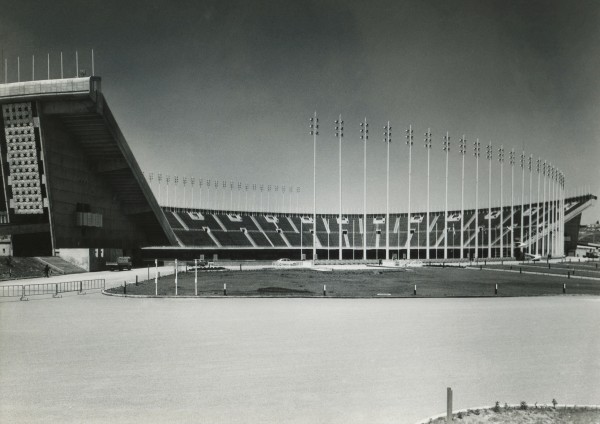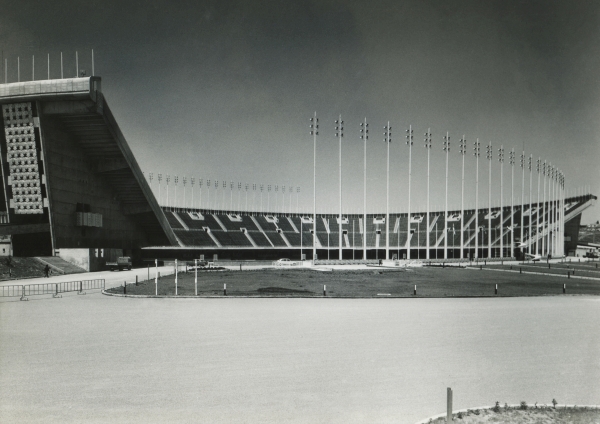Ázbej & Ázbej
Kunsthalle, Budapest, 26 July – 11 September 2016

S├Īndor ├üzbej: July 5th Stadion, Alg├Łr, 1972
Interlinking generations, the co-operation of fathers and their children in the arts and disciplines make for inexhaustible, exciting and enlightening stories. An exhibition of father and son is proof positive that renewal need not begin by sweeping away the past, but often quite the contrary. The concept of this exhibition is to present some snapshots of intertwinements and junctions, without a specific system or judgement.
Architect father, artist son, each creating a unique architectural and artistic oeuvre. The exhibition presents the work of S├Īndor ├üzbej and his son Krist├│f.
S├Īndor ├üzbej (1913ŌĆō1998) was a Mikl├│s Ybl Award-winning architect who designed, and coordinated the construction of, the 5 July 1962 Stadium in Algiers. His work paved the way for Hungarian-Algerian technical co-operation that went on for over two decades. Although it was modelled on the PeopleŌĆÖs Stadium in Budapest, then just a few years old, the Algerian stadium surpassed it in architectural and technical terms. It is an impressive building by international standards, serving the needs of the age in every respect.
Between the late 1960s and the end of the 1980s Hungarian architects and engineers built some 160s facilities around Algiers. The buildings and facilities continue to serve as an organic part of AlgeriaŌĆÖs architectural and technical infrastructure.
Kristóf Ázbej (1953) claims to have become attracted to the arts in the family environment. His most important work is a 52-square-metre giant, panoramic collage, which he worked on for fifteen years from 1981 onwards in his two-room studio apartment near Paris (Bagneux).
